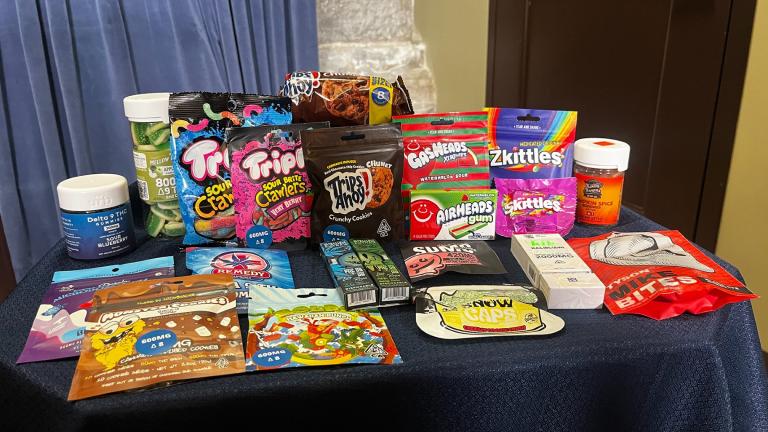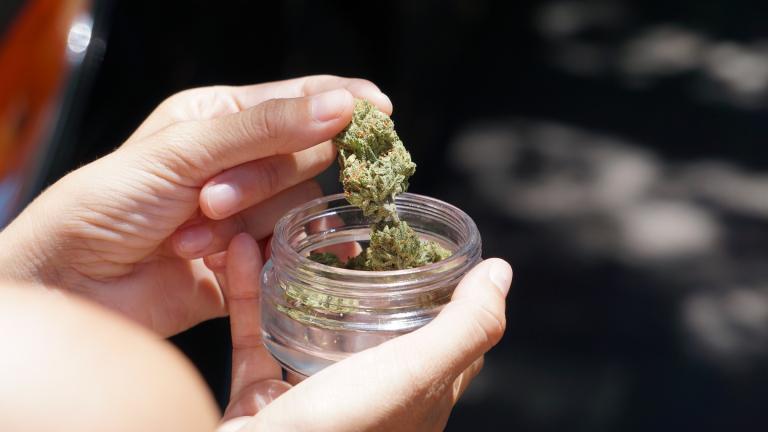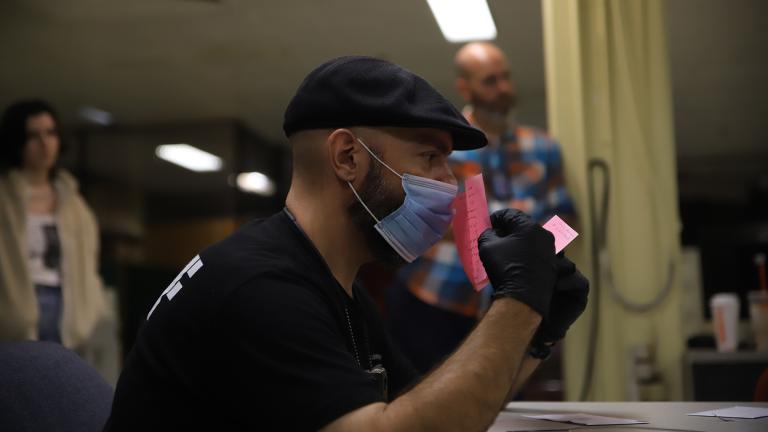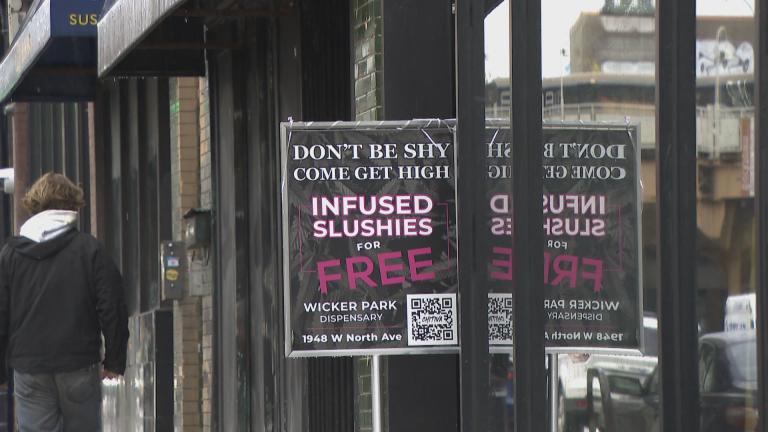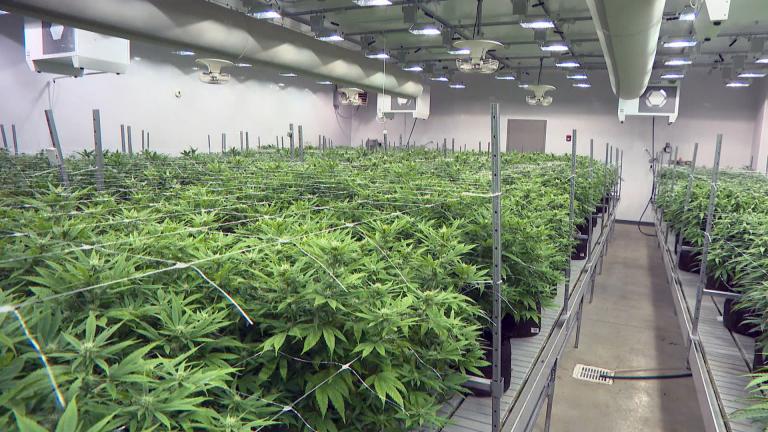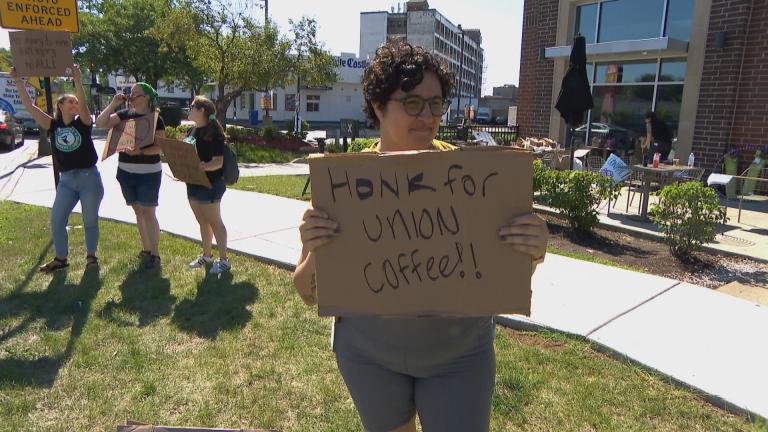Marijuana has been legal in Illinois for more than a year-and-a-half, but it’s not necessarily quick or easy to get.
One in five Illinois residents would have to make a 40-minute round trip to get to one of the state’s 110 dispensaries, according to research by the Anderson Economic Group.
In Illinois, there’s one cannabis dispensary for every 117,000 people; in contrast, in Michigan — where cannabis was legalized at about the same time as it was in Illinois – there’s one pot shop per every 32,000 residents.
Analyst Andrew Miller said that’s not due to a lack of demand.
The state eclipsed its record last month, with $128 million in sales in July.
“I’d say that’s relatively unsurprising given that fact that we had more out of state purchasers due to Lollapalooza here in Chicago,” Miller said. “But on top of that we’ve seen really strong demand in Illinois since the market opened at the beginning of 2020.”
He said Illinois has one of the country’s largest markets for legal recreational cannabis.
Sooner than later, people will have more opportunities to buy pot legally; after a much-delayed, problem-filled process, Illinois is in the process of awarding 185 new dispensary licenses: a batch of 55 winners were selected earlier this month, and another 55 were chosen Thursday.
Per state law, those licenses are intended to go first and foremost to so-called “social equity” applicants, who most directly faced negative repercussions of past law that sent people to prison for selling or using weed.
Until now, the industry has been dominated by white men.
“(Black and Brown) people definitely make up the majority of the people who are in jail for cannabis arrests, cannabis convictions and things of that nature,” said Kiana Hughes, a leader of Chicago NORML. “So when we talk about social equity that is not to necessarily exclude our non-minority counterparts, but that is definitely to say that, yeah, that is the legislative intent. The idea was to make whole the things that were lost, the things that were sacrificed.”
Hughes is trying to win one of the coveted licenses.
She’s not had luck so far, but her three applicant groups have another chance at the final lottery: 75 licenses are scheduled to be awarded Aug. 19.
Natascha Neptune, with the National Women in Agriculture Association, also tried to win a state license, to grow cannabis, but her application wasn’t selected.
Neptune’s skeptical of the whole process, and says it lacks credibility.
The lotteries were done privately; she says they should have been public, to ensure that all qualifying applicants were actually entered.
Already, some of the lucky applicants who have won licenses are talking about selling them, likely to the big businesses that operate across several states, known as MSOs.
Neptune calls those multi state operators “piranhas.”
“I thought people like me had a chance and it just seems like it’s going to be more the MSO just buying up these licenses from so-called awardees,” she said. “There’s no safeguards in place (in state law) for these licensees to be even held to social equity standards, and that just kinda went over … it just didn’t get addressed. So now what’s going to happen, people are going to get these so-called conditional licenses, people are probably going to most likely sell them to MSOs and here we go again” with an industry benefiting entrenched wealthy, largely white, interests.
It’s totally legal for MSOs to snatch licenses from any licensee that wants to sell, though there are certain timing stipulations.
Hughes, however, says it’s fine by her if those who win a state license to legally run a cannabis business in Illinois auction it off to the highest bidder. She says not everyone wants to actually run a dispensary or pot business.
“This is life-changing money,” Hughes said. “I personally am not of the opinion that we should dictate how we go about managing that. Once you win the license, listen, you put in the work, you do with it as you will.”
She says Illinois’ Black and Brown communities would benefit either way — if a social equity applicant sells a license for big bucks, that money’s going back into their communities and neighborhoods.
While Illinois is going forward with the lotteries, a lawsuit could mean even more delays. A hearing is set for Aug. 9.

